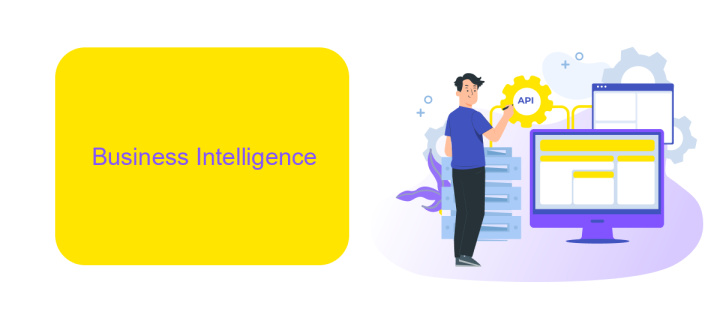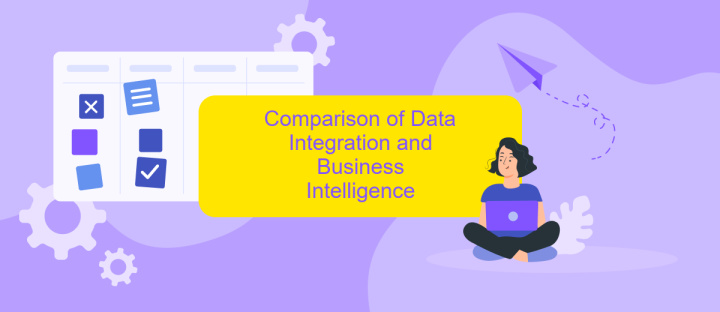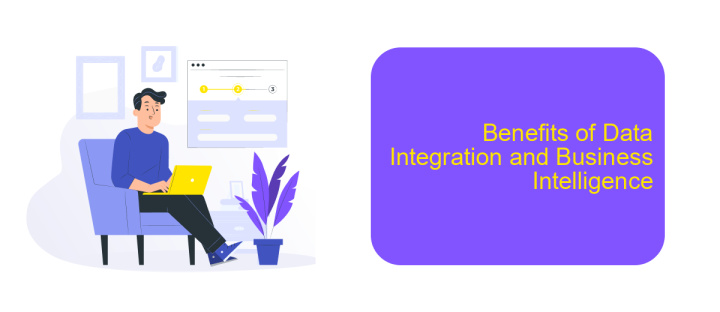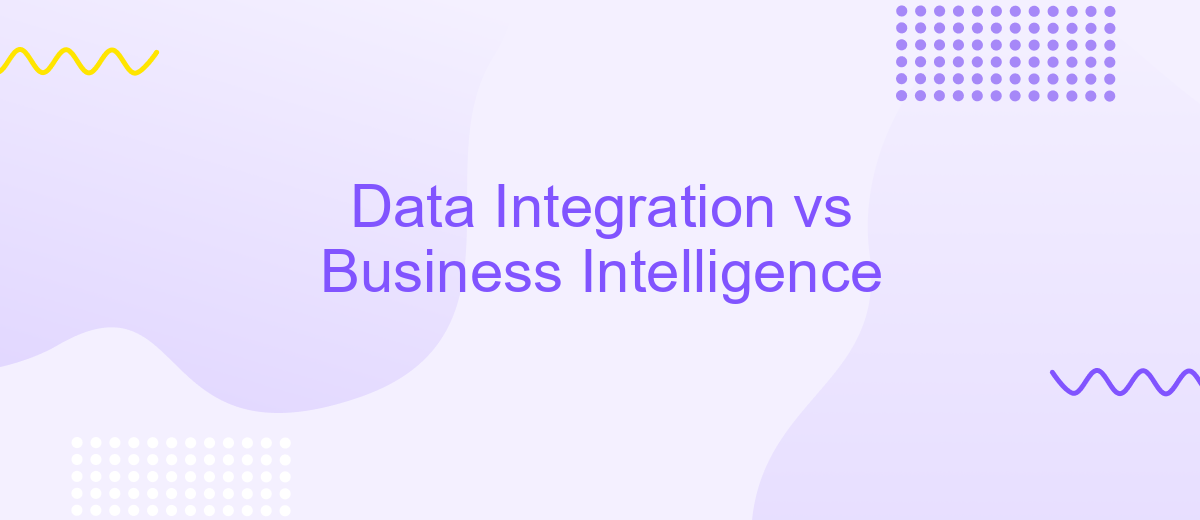Data Integration vs Business Intelligence
In today's data-driven world, businesses increasingly rely on both Data Integration and Business Intelligence to make informed decisions. While Data Integration focuses on combining data from various sources into a unified view, Business Intelligence leverages this data to generate actionable insights. Understanding the distinctions and interplay between these two processes is crucial for maximizing organizational efficiency and achieving strategic goals.
Data Integration
Data integration involves combining data from different sources to provide a unified view. This process is essential for businesses that rely on various data streams to make informed decisions. By integrating data, organizations can ensure consistency and accuracy, which is crucial for effective analysis and reporting.
- Combines data from multiple sources
- Ensures data consistency and accuracy
- Facilitates comprehensive analysis and reporting
One of the tools that can simplify the data integration process is ApiX-Drive. This service allows users to automate data transfer between different systems without requiring extensive technical knowledge. ApiX-Drive supports a wide range of integrations, making it easier for businesses to manage their data flows efficiently. By using such tools, companies can save time and resources while maintaining high data quality.
Business Intelligence

Business Intelligence (BI) involves the use of technologies, applications, and practices for the collection, integration, analysis, and presentation of business information. The primary goal of BI is to support better business decision-making. BI systems provide historical, current, and predictive views of business operations, often using data that has been gathered into a data warehouse or data mart. The insights derived from BI can help companies identify market trends, spot business problems that need to be addressed, and uncover new business opportunities.
One of the essential components of a successful BI strategy is the integration of data from various sources. Tools like ApiX-Drive can facilitate this process by automating the integration of different data streams into a unified system. ApiX-Drive allows businesses to connect various applications and services without requiring extensive coding knowledge, ensuring that all relevant data is available for analysis in real-time. By streamlining data integration, companies can ensure that their BI systems are fed with accurate and up-to-date information, thereby enhancing the reliability and effectiveness of their business insights.
Comparison of Data Integration and Business Intelligence

Data Integration and Business Intelligence are two critical components in the realm of data management, each serving distinct purposes but often working in tandem to deliver comprehensive insights. Data Integration focuses on combining data from various sources into a unified view, ensuring consistency and accessibility. Business Intelligence, on the other hand, involves analyzing this integrated data to generate actionable insights and support decision-making processes.
Here are the key differences between Data Integration and Business Intelligence:
- Purpose: Data Integration aims to consolidate data, while Business Intelligence focuses on analyzing and interpreting that data.
- Process: Data Integration involves data extraction, transformation, and loading (ETL), whereas Business Intelligence uses tools and techniques to visualize and report data.
- Outcome: The result of Data Integration is a cohesive dataset, while Business Intelligence provides insights and recommendations.
- Tools: Data Integration tools include platforms like ApiX-Drive, which streamline data consolidation, while Business Intelligence tools include dashboards and reporting software.
In summary, while Data Integration and Business Intelligence are distinct processes, they are complementary. Data Integration ensures that accurate and comprehensive data is available, which Business Intelligence then leverages to drive strategic decisions. Utilizing services like ApiX-Drive can significantly enhance the efficiency of data integration, ultimately leading to more robust business intelligence outcomes.
Benefits of Data Integration and Business Intelligence

Data integration and business intelligence are crucial for organizations aiming to leverage their data for strategic decision-making. By combining data from various sources, businesses can gain a comprehensive view of their operations, leading to more informed and effective decisions.
One of the primary benefits of data integration is the elimination of data silos. With integrated data, companies can ensure consistency, accuracy, and accessibility of information across all departments. This seamless flow of data also enhances collaboration and streamlines workflows.
- Improved data quality and consistency
- Enhanced decision-making capabilities
- Increased operational efficiency
- Better customer insights and experiences
- Cost savings through automation
Furthermore, tools like ApiX-Drive simplify the process of data integration by providing easy-to-use interfaces and automation features. ApiX-Drive enables businesses to connect various applications and systems without requiring extensive technical expertise, ensuring that data is readily available and actionable. This empowers companies to focus on deriving value from their data rather than getting bogged down by integration challenges.
- Automate the work of an online store or landing
- Empower through integration
- Don't spend money on programmers and integrators
- Save time by automating routine tasks
Conclusion
In conclusion, both Data Integration and Business Intelligence play crucial roles in modern business environments. Data Integration ensures that disparate data sources are seamlessly connected, providing a unified view of information. This unified data is then leveraged by Business Intelligence tools to generate actionable insights, driving informed decision-making. While these processes are distinct, they are highly complementary, working together to enhance organizational efficiency and effectiveness.
For businesses looking to streamline their data integration processes, services like ApiX-Drive offer valuable solutions. ApiX-Drive simplifies the integration of various applications and data sources, ensuring that data flows smoothly across systems. By utilizing such services, companies can focus more on analyzing data rather than dealing with the complexities of integration. Ultimately, the synergy between Data Integration and Business Intelligence, supported by robust integration tools, empowers businesses to harness the full potential of their data.
FAQ
What is the main difference between Data Integration and Business Intelligence (BI)?
Why is Data Integration important for Business Intelligence?
Can Data Integration and Business Intelligence be automated?
How can businesses ensure the quality of data in Data Integration?
What are some common challenges in Data Integration for Business Intelligence?
Apix-Drive is a simple and efficient system connector that will help you automate routine tasks and optimize business processes. You can save time and money, direct these resources to more important purposes. Test ApiX-Drive and make sure that this tool will relieve your employees and after 5 minutes of settings your business will start working faster.


